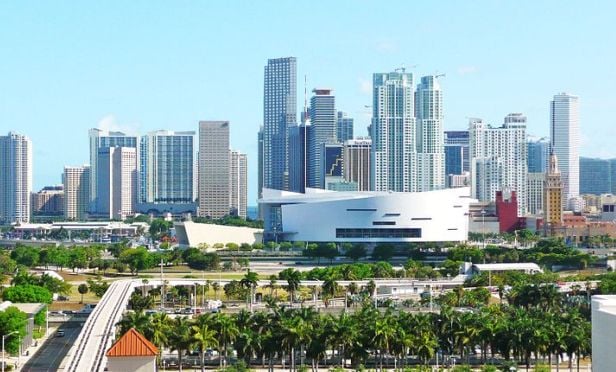MIAMI—Hurricane Irma battered the Florida overnight as it moved up the middle of the Peninsula. Storm waters are expected to flood roads and real estate properties along Florida's western coast.
GlobeSt.com caught up with Mark Martel, FirstService Residential Florida to get some advice for multifamily owners and tenants who find themselves in Irma's part in part two of this exclusive interview. You can still read part one: What to Keep in Mind in the Wake of Hurricane Harvey's Wrath.
GlobeSt.com: What can residents of a managed community do after a hurricane?
Martel: As soon as it is declared safe to re-enter the home, residents can do their part to mitigate further damages by placing tarps over open roofs, broken windows and open doors as needed, and remove debris as soon as possible to reduce the threat of injuries, while the property manager and board tackle getting the community back in shape. Residents should only run generators in well-ventilated outdoor areas—never indoors—to prevent carbon monoxide poisoning. Fuel-powered generators cannot be used in multi-story residential complexes inside a unit, on a balcony or in any common area unless approved by the board and the local fire marshal.
GlobeSt.com: Hurricane season is far from over and other storms are on the horizon. What might be overlooked when it comes to hurricane preparation?
Martel: Most people tend to focus on physical structures as part of hurricane preparation. But don't forget digital files—all association records and files should be backed up on a remote server or on a hard drive that's kept in another location or a fireproof, waterproof safe. That's also an effective way to store hard copies of key documents. Be sure to include building and facilities plans in case first responders, utilities or insurance representatives need to reference them.
Something else to consider is having a list of all bank accounts and association signatories on hand, as well as a list of all branch locations. The property manager can help make a back-up plan to have additional signatories should the primary ones become unavailable. And one board member should be designated to hold two signed checks in case contractors require payment immediately after a storm. Doing this will help make sure the community has the resources immediately following the storm for emergency repairs while working through the insurance claims process.
Want to continue reading?
Become a Free ALM Digital Reader.
Once you are an ALM Digital Member, you’ll receive:
- Breaking commercial real estate news and analysis, on-site and via our newsletters and custom alerts
- Educational webcasts, white papers, and ebooks from industry thought leaders
- Critical coverage of the property casualty insurance and financial advisory markets on our other ALM sites, PropertyCasualty360 and ThinkAdvisor
Already have an account? Sign In Now
*May exclude premium content© 2024 ALM Global, LLC, All Rights Reserved. Request academic re-use from www.copyright.com. All other uses, submit a request to [email protected]. For more information visit Asset & Logo Licensing.









